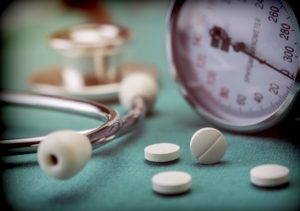 If you’re doing everything you can for a healthier heart but are still taking blood pressure medication, you need to read this.
If you’re doing everything you can for a healthier heart but are still taking blood pressure medication, you need to read this.
It’s true that a more active lifestyle, anti-inflammatory diet, and other factors can all help make your heart healthier. These interventions can lower blood pressure, reduce cholesterol, and slash the risk of a heart attack or stroke. But they aren’t exactly fast-acting, which is my you still might need medication to keep blood pressure under control.
Advertisement
A new study indicates when you take your medication can have a massive influence on your likelihood for a heart attack, stroke, or other cardiovascular-related event.
The study, published in the European Heart Journal, showed that taking antihypertensive medication before bed time, rather than in the morning, could significantly improve chances of and limit the risk of serious events brought on by high blood pressure.
Researchers randomly assigned 19,084 hypertensive adults to take their blood pressure medication either upon waking or going to bed. After an average follow-up period of six years, they found that taking meds at night could reduce the risk of:
- Death due to heart or blood vessel conditions by 66%
- Stroke by 49%
- Heart attack by 44%
- Heart failure by 42%
- Coronary revascularization by 40% (A procedure that unblocks or widens a vessel to restore blood flow)
Currently, there are no guidelines about when to take blood pressure medication, but these findings are likely to change that.
It’s unclear why these huge differences were noticed, but it may have something to do with sleep. Perhaps blood pressure medication induces better sleep by taming effects of sleep apnea, a major contributor to stroke, but at this point, it’s too early to say. In any event, it seems like taking blood pressure medication at night has the potential to save your life.
So, if you’re doing everything you can to bring down blood pressure, taking pills at night is highly recommended. It may even lead to you getting off of them sooner! If that’s not incentive, I don’t know what it!
